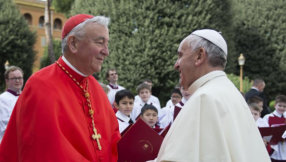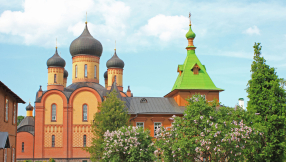Obama is too optimistic about Middle East democracy
President Obama referred several times to the desire for democracy among the demonstrators, but is this enough? Democracy can lead to a tyranny of the majority. Unless there is a strong charter of liberty that safeguards the rights of women and non-Muslim communities, democracy on its own may prove chimerical. There needs also to be a commitment to one law for all and to equality under the law.
The retention in Egypt of Sharia as the sole basis for law cannot be a good omen for the future of such equality. These difficult questions cannot be bypassed by soft-focused references to democracy. Obama mentioned a “fierce contest for power” but did not say that some of those engaged in that contest may be ideologically committed not to relinquish such power once they have acquired it.
We should never forget the lessons from Iran in 1979, where many secular, moderate, and non-violent elements joined with Islamists in the struggle to oust the Shah. Once he was toppled, however, the Islamists got rid of their erstwhile allies one by one. Egypt, of course, is not Iran, and we pray that what happened there will not also happen in Egypt, but we need awareness of the parallels.
Dhimmi mentality?
Some scholars have written about the dhimmi mentality, i.e. a subservient attitude developed towards Muslim rulers by Christian, Jewish, and other communities that were allowed to survive, but under heavy restrictions, in the Muslim world.
It has sometimes been held that the West’s response to events in the Muslim world betrays a similar mentality, brought about by fear. Was the President’s speech an example of this?
Bin Laden
The President seems understandably but unduly optimistic about the aftermath of Osama bin Laden’s death. It will undoubtedly affect some of al-Qaeda’s operations, but extremist Islamism is now so decentralised that it will have little effect. It would be a great mistake to see bin Laden’s death as the end of radical Islam. It may in fact lead to his becoming an icon or a martyr in exactly the way that the President does not wish.
Arab Spring?
Has the “Arab Spring” been as non-violent as the President claims? Certainly there are many in the Middle East who want it to be - and to remain - non-violent. But the Copts whose churches have been burned, whose young people have been killed, and whose women have been abducted will hardly see it that way. The emergence of a Salafism in Egypt, Gaza, and Jordan as a result of the revolutions may turn out to be much more difficult to deal with than even the Wahhabism of AQ. Obama should not be misled into thinking that this is some kind of Gandhian or Martin Luther King–like movement.
Bishop Michael Nazir-Ali is director of the Oxford Centre for Training, Research,Advocacy and Dialogue. This article first appeared in National Review Online













